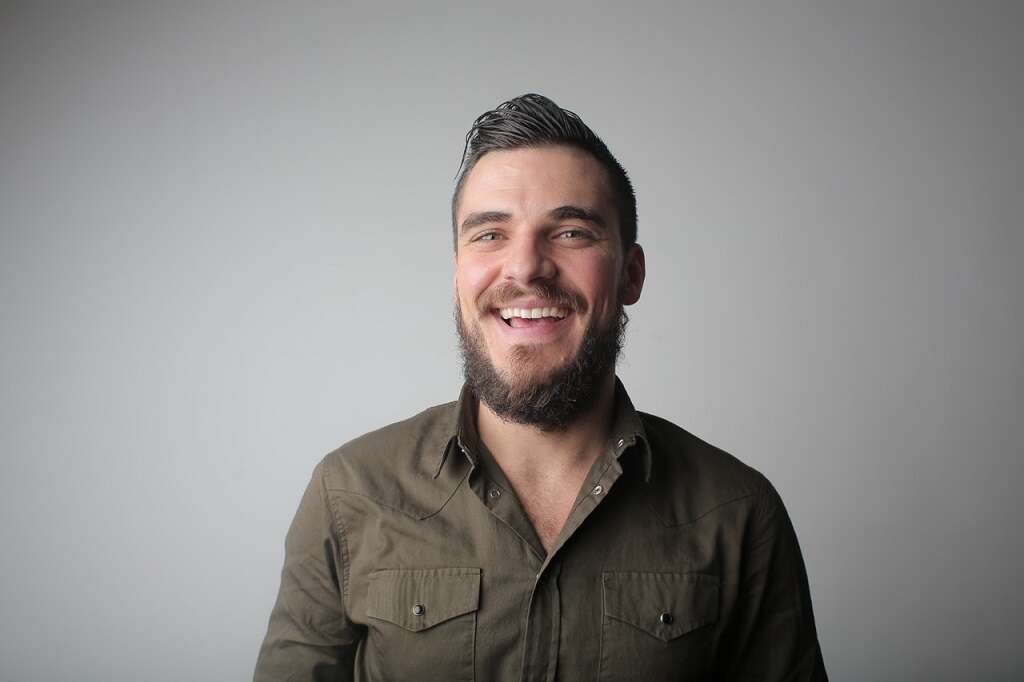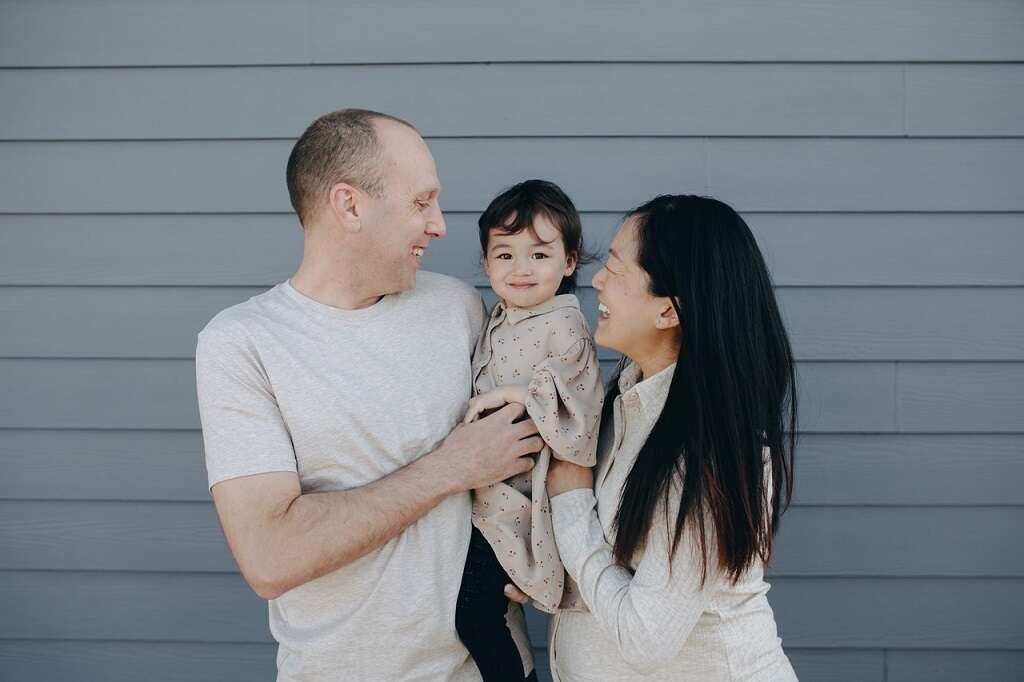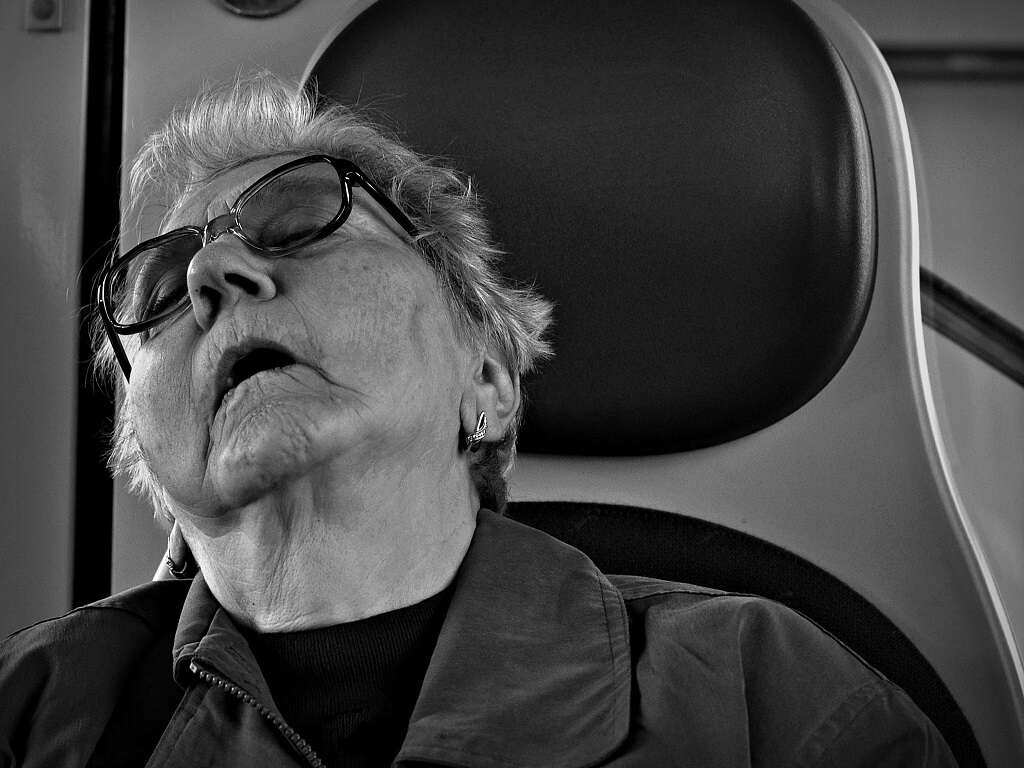What Are Dimples?
Many people wonder what dimples are and how they form. Dimples are a mutation in the zygomaticus major muscle in the cheek. Many believe genetics may play a role in the development of dimples, but more research is necessary.
Cheek dimples are found on the cheek of one or both sides of the face. Not every person has cheek dimples in the same area. The position of dimples can be higher or lower on the cheeks. Some people's dimples are closer to the mouth, while others are positioned further up toward the nose.

How Many People Have Dimples?
It's hard to determine how many people have dimples globally. Some studies show that dimples may be a recessive gene, similar to red hair. One study of 2,304 subjects found that 37 percent of participants had dimples.11. Ese, A. ‘PREVALENCE OF FACIAL DIMPLES AMONG THE NIGER DELTANS IN NIGERIA.’ Semantic Scholar, 1 Jan. 1970, www.semanticscholar.org/paper/PREVALENCE-OF-FACIAL-DIMPLES-AMONG-THE-NIGER-IN-Ese/8c3a9b16153bbd346d9edeae261ccb2f1fce4a9d?p2df Another study conducted on 1,462 people found that eight percent of participants had dimples.
Some cultures place a high value on dimples. In these cultures, it's possible that a higher percentage of the population has dimples due to techniques or procedures used to create them. For example, Chinese culture believes dimples are lucky or attractive.

How Are Dimples Formed?
Cheek dimples are formed by a genetic mutation or alternation in a facial muscle called the zygomaticus major. In people with dimples, this muscle divides into two separate bundles. The two bundles of muscles are also directly attached to the blanketing skin.
When the zygomaticus major muscle pulls upward to smile, the attached skin is also pulled. Dimples are formed because the separated muscle bundles pull in slightly different directions, causing an indentation.

What Is the Zygomaticus Major?
The zygomaticus major is a facial muscle that helps control facial expressions. It does this by drawing the mouth upward and outward. When a person smiles or laughs, they're making use of this large facial muscle.
The zygomaticus major starts at the cheekbone and extends to the corners of the mouth. A split in this major facial muscle is responsible for creating the indentation known as a dimple. There can be slight variations in the position of the zygomaticus major, which affects face shape.

Genetics May Be a Factor
Many professionals believe the development of dimples may be based on genetics. However, there's still ongoing research on the topic, and not all professionals agree.
What is known is that parents with dimples appear to be more likely to have children with them. Some believe dimples are a genetic trait, like having red hair. This may explain why dimples seem to appear in such a small percentage of the population.

Considered Good Luck in Chinese Culture
Chinese culture places an emphasis on dimples, particularly on babies born with them. If a baby is born with natural dimples, Chinese culture says the child will grow up to be polite, pleasant and enthusiastic. These are traits valued highly by Chinese society.
The same good luck placed on dimples also offers a warning. Chinese culture says that despite having these valued traits, those born with cheek dimples will grow up to have a complicated love life.

May Help Communicate
One study conducted on human facial expressions offers some insight into the purpose of dimples. While more research needs to be done, the study indicates that dimples may help people communicate more clearly.
The presence of dimples is thought to make an expression or smile more noticeable. The study suggests dimples may also better indicate the intensity of a person's expression. For example, the amount of happiness a smile is meant to convey.

Can Dimples Disappear?
In some cases, it's possible for dimples to disappear. One prime example is the many infants who appear to have dimples but later outgrow them as the zygomaticus major muscle fully matures.
Others may appear to lose or gain dimples, while they're usually only becoming more or less noticeable. Individuals who gain weight may look as though they've lost dimples, while people who lost weight appear to have gained them. In both situations, the dimples likely haven't changed but the ability to see them has.

What Is a Dimpleplasty?
Some people want dimples, but weren't born with them. For those people, there's a cosmetic procedure called a dimpleplasty.
During the procedure, a small incision is made in the cheek where the dimple will be placed. A small amount of tissue is removed from the area, and a small stitch is made on either side of the muscle, through the skin. When the stitches are pulled together, they create a dimple.

Is a Dimpleplasty Safe?
People considering a dimpleplasty may wonder if the procedure is safe. While generally considered a safe cosmetic procedure, it's still surgery. All surgeries come with the potential for complications.
Possible complications include damage to the facial muscles, poor wound healing and infection. Allergies to the anesthesia or postoperative medications are also possible. People considering the surgery may want to speak with their doctor about any concerns before making a decision.

The Bottom Line
Dimples are small indentations caused by the zygomaticus major splitting into two separate muscle bundles. Genetics appear to play a role in the development of dimples, but more research is necessary to confirm this.
People who aren't born with dimples can undergo a cosmetic procedure known as a dimpleplasty. The procedure is likely safe for most people, but individuals considering a dimpleplasty should speak to their doctors about any concerns.












